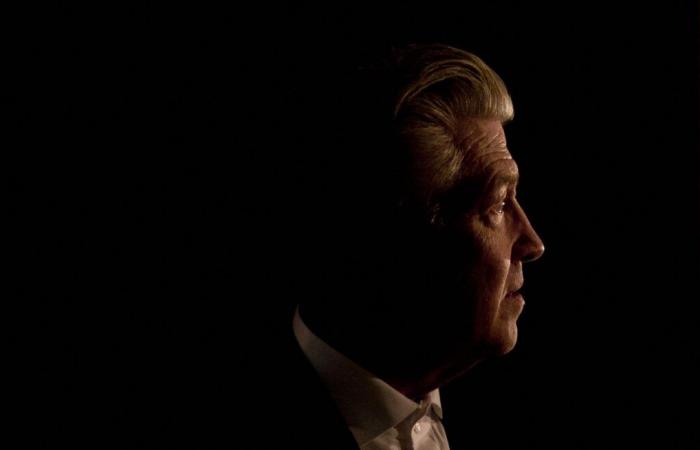Few filmmakers can boast of having seen their name become an adjective. David Lynch, who died at age 78 on January 16, was part of this distinguished group. In fact, the director of Blue Velvetof Twin Peaks and of Mulholland Drive had an openly mysterious style often imitated, but never equaled… nor elucidated. In “Lynchean” cinema, reality flirts with surrealism and dreaminess, in a very singular way. Suffering from emphysema, David Lynch announced his forced retirement in 2024. He leaves to posterity a filmography as unique as it is influential.
Born in 1946 in Missoula, Montana, David Lynch was a very average student. His father, a scientist at the United States Department of Agriculture, his mother, an English tutor, and he moved often because of the former’s job.
After dropping out of his arts studies in the 1960s, Lynch toured Europe with his friend and future artistic director, Jack Fisk. The trip only lasts two weeks.
Return to the United States, return to studies and painting: a lasting passion and source of inspiration. On this subject, Dennis Lim, a programmer at the Film Society of Lincoln Center, writes in a 2015 essay published by Criterion how Lynch was transformed as a teenager by reading a book by the American realist painter Robert Henri, entitled The Art Spirit.
“A collection of notes and speeches [du peintre] Robert Henri, The Art Spirit combines technical lessons with ruminations on art, as the source of “our greatest happiness”. Lynch experienced this reading as a true epiphany, a permission to devote his life to creation. »
Moreover, it was by imagining his paintings coming to life that Lynch began to experiment with a 16 mm camera. Through different short films, the neophyte director moves from animation, to volume animation, to live action. For the account, Eraserheadhis first feature film, was to be a short. With a script of barely twenty pages and the help of close friends, including Jack Fisk and his partner, the actress Sissy Spacek, Lynch shot between 1972 and 1976 what would become his calling card cinematographic.
Ups and downs
When it was released in 1977, Eraserheadwhich has as protagonists a couple and their mutant baby, leaves the critics perplexed, but enthusiastic: a scenario which will be repeated several times during the director’s career. Impressed by Lynch’s direction and the black and white style of the film, Mel Brooks, renowned director-producer, entrusted the young filmmaker with the direction of The Elephant Man (The elephant man), with John Hurt, Anthony Hopkins and Anne Bancroft, Brooks’ wife. The life of John Merrick moves, while the formal panache of David Lynch amazes.
Equipped with more resources, the filmmaker thus gives the measure of his talent (by again using black and white). Released in 1980, The Elephant Man received eight Oscar nominations. Lynch is launched.
The following year, courted by the Italian megaproducer Dino De Laurentiis, he agreed to adapt the novel Duneby Frank Herbert, after Ridley Scott and Alejandro Jodorowsky broke their teeth there. At the end of a nightmarish – and very expensive – shoot in Mexico, the film was a resounding flop in 1984. Lynch disavowed the film for a long time, re-edited against his will.
Far from renouncing cinema, or his collaboration with De Laurentiis’ company, Lynch returned to a reduced scale, and above all more personal, with his next film: a mystery set in a small American town à la Norman Rockwell, as he did experienced a lot during his childhood and adolescence. And this time, since he works with a reduced salary and a modest budget, Lynch has the privilege of the “final cut”, which he will always demand afterwards.
The result, Blue Velvetdivided Cannes in 1986. In a famous review, Roger Ebert accused Lynch of having “degraded” and “humiliated” Isabella Rossellini (then the filmmaker’s partner) in the film. Regardless, the film earned Lynch an Oscar nomination for best director in 1987.
Special atmosphere
Looking back, Blue Velvet stands out as a pivotal film for Lynch, who develops many motifs, figures and symbolic elements present in his subsequent films. Above all, the filmmaker creates this very particular atmosphere where reality seems constantly contaminated by dreams, and where the dialogues and interactions have a curiously offbeat side.
In 1990, his next film, Wild at Heart (Sailor et Lula), a sort of hallucinatory rereading of The Wizard of Oz (The Wizard of Oz), earned him boos in Cannes, from where he nevertheless left with the Palme d’Or. Victor Fleming’s 1939 film is one of David Lynch’s key influences (see the documentary Lynch/Oz).
The same year, he created the TV series with Marc Frost Twin Peakswhich relates the investigation surrounding the murder of a teenage girl… in a small American town à la Norman Rockwell, take two. Cryptic, the series fascinates. In 1992, the prequel appeared in cinemas: Twin Peaks: Fire Walk with Me (Twin Peaks. Fire walks with me), a bitter critical and popular failure, then, in 2017, the unexpected season in all respects Twin Peaks: The Return.
Previously, Lynch filmed in 1997 Lost Highway (Lost Road), a neonoir where we recognize his love of retro, opaque criminal intrigues, and split characters. Shunned, the film becomes cult and announces its popularity Mulholland Drivewhich, in 2001, recounts the increasingly strange tribulations of an aspiring actress.
Best Director Award at Cannes, Mulholland Drive marks another high for Lynch.
In the meantime, the director surprises everyone with the remarkable, and very realistic, The Straight Story (A true story), in which an old man travels nearly 400 kilometers by tractor to go to his brother’s bedside (he leads his friend Sissy Spacek, moving as the hero’s daughter).
In an obvious continuity, but with much more experimental trappings reminiscent of his beginnings, the filmmaker offers in 2006 Inland Empirewhich relates the unusual destiny of another actress.
Faithful filmmaker
Faithful, David Lynch often surrounds himself with the same performers: Kyle MacLachlan (Dune, Blue Velvetthe saga Twin Peaks), Isabella Rossellini (Blue Velvet, Wild at Heart), Laura Dern (Blue Velvet, Wild at Heart, Inland Empire, Twin Peaks: The Return), Everett McGill (Dune, The Straight Storythe saga Twin Peaks), to name a few.
In the collection of interviews David Lynch: InterviewsRichard A. Barney summarizes the approach of the principal interested party as follows: “As a filmmaker convinced of the capacity of films to make the public dream, Lynch aims to produce works that are both concrete and evocative of mystery. »
And the author clarifies that, during the rare interviews to which he has agreed over the years, “mystery” is one of the words that Lynch uses most frequently. This explaining this, when watching his films, we do not fail to wonder about the meaning to be given to the variously bizarre, but always fascinating, developments. However, as he was notoriously allergic to explanations, David Lynch left the “mystery” surrounding his cinema intact. And what a beautiful legacy that is.






